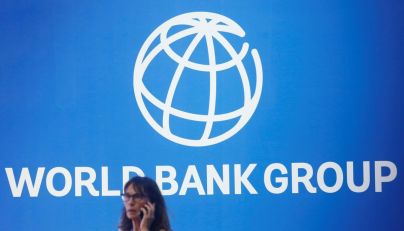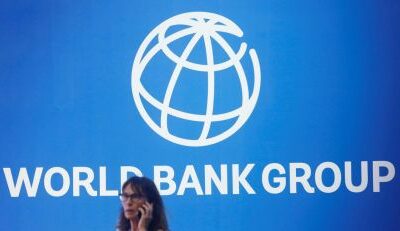Business
GCC Economic Growth Set to Accelerate to 4.4% by 2026

The Gulf Cooperation Council (GCC) countries are on track for a notable economic rebound, with growth projected to accelerate from 2.2% in 2024 to 3.5% this year and 4.4% in 2026. This upturn is largely attributed to the gradual phasing out of OPEC+ production cuts and a robust expansion in the non-oil sector.
Insights from the MENA Forum
During the recent MENA Forum on Insolvency and Restructuring Reform, Sandeep Mahajan, the World Bank Group’s MENA Regional Practice Director, addressed the region’s economic outlook. He highlighted both immediate opportunities and long-term challenges, particularly those related to job creation and demographic shifts. Mahajan emphasized the crucial role of the private sector and the significance of effective insolvency systems.
Mahajan stated, “The MENA region holds tremendous potential. Its young and dynamic markets, combined with a strategic geographic position, make it a bridge between continents and cultures.” He stressed that realizing this potential requires bold decisions and collaborative commitments from regional leaders.
In discussing the near-term economic outlook, Mahajan noted, “As we look ahead, the economic outlook for the MENA region presents both encouraging signs and significant uncertainties.” He pointed to improvements in growth prospects, driven by stronger international trade, milder-than-expected tariff increases, and more accommodating financial conditions.
According to the World Bank, global and regional forecasts for 2025 have improved since last spring, signaling resilience and adaptability. Nevertheless, Mahajan cautioned that global growth for 2025 is expected to be approximately half a percentage point lower than last year, highlighting the fragile nature of this positive momentum.
Regional Growth and Inflation Outlook
The average economic growth for the region is projected to be 2.8% in 2025 and 3.3% in 2026, compared to 2.4% in 2024. Inflation rates are expected to remain manageable, with the median inflation projected at 2.3% for both 2025 and 2026 as a result of declining global commodity prices and stable exchange rates.
Mahajan highlighted ongoing leadership and reform efforts across the region, noting that, “We are now seeing examples of leadership and reform that are shaping the business landscape.” For instance, Qatar has implemented a new law to enhance investment policy support, resulting in expedited procedures and improved case management, showcasing a commitment to building a more efficient justice system.
Beyond Qatar, Mahajan acknowledged leadership in Saudi Arabia, inclusivity in Egypt, and the determination evident in Morocco, Jordan, and Pakistan. He remarked, “This region is not just keeping pace with the world; it is actively shaping it with a renewed spirit of leadership and innovation.”
The forum, which spanned two days, included specialized sessions aimed at enhancing the capacity of insolvency practitioners through effective regulatory frameworks, licensing, and supervision. It also addressed the integration of technology and artificial intelligence to improve legal and regulatory efficiency, as well as the interplay between laws and insolvency legislation. Workshops focused on preventive insolvency tools discussed advanced global restructuring strategies, including early-warning mechanisms and pre-insolvency frameworks.
As the GCC countries move toward this optimistic economic future, the discussions at the MENA Forum underscore the importance of continued reform and collaboration in unlocking the region’s full potential.
-

 Sports2 months ago
Sports2 months agoNetball New Zealand Stands Down Dame Noeline Taurua for Series
-

 Entertainment2 months ago
Entertainment2 months agoTributes Pour In for Lachlan Rofe, Reality Star, Dead at 47
-

 Entertainment3 weeks ago
Entertainment3 weeks agoNew ‘Maverick’ Chaser Joins Beat the Chasers Season Finale
-

 Sports2 months ago
Sports2 months agoSilver Ferns Legend Laura Langman Criticizes Team’s Attitude
-

 Sports2 days ago
Sports2 days agoEli Katoa Rushed to Hospital After Sideline Incident During Match
-

 Politics1 month ago
Politics1 month agoNetball NZ Calls for Respect Amid Dame Taurua’s Standoff
-

 Entertainment2 months ago
Entertainment2 months agoKhloe Kardashian Embraces Innovative Stem Cell Therapy in Mexico
-

 World3 months ago
World3 months agoPolice Arrest Multiple Individuals During Funeral for Zain Taikato-Fox
-

 Sports3 months ago
Sports3 months agoGaël Monfils Set to Defend ASB Classic Title in January 2026
-

 Entertainment1 month ago
Entertainment1 month agoTyson Fury’s Daughter Venezuela Gets Engaged at Birthday Bash
-

 Sports1 month ago
Sports1 month agoHeather McMahan Steps Down as Ryder Cup Host After Controversy
-

 World2 weeks ago
World2 weeks agoSevere Winds Hit New Zealand, Over 100 Flights Canceled
















